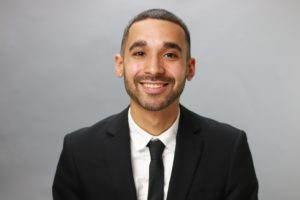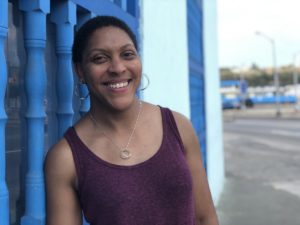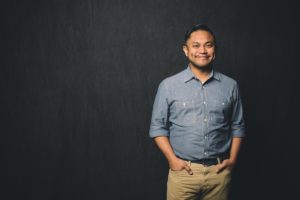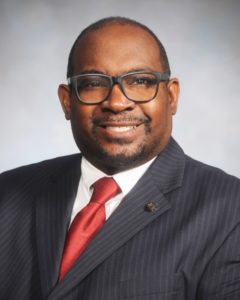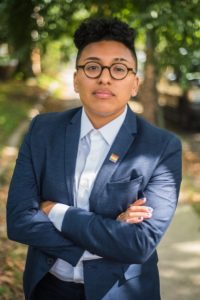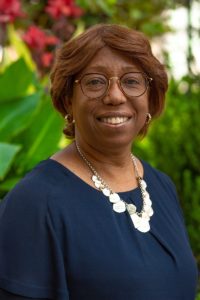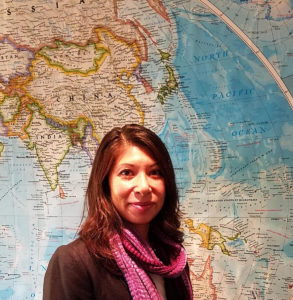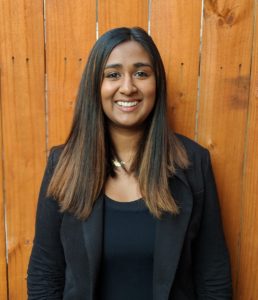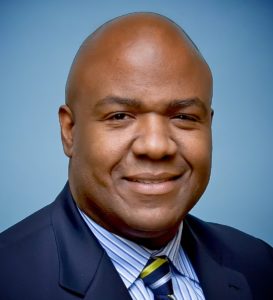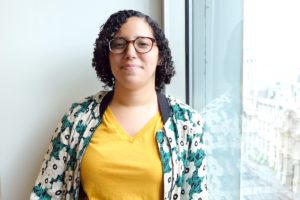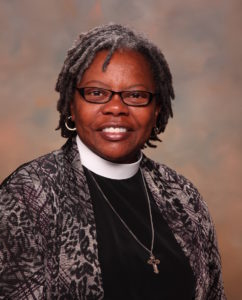Leader List 2018: Meet 12 people of color strengthening Philly’s social impact sector
 August 31, 2018
Category: Feature, Featured, Long, People
August 31, 2018
Category: Feature, Featured, Long, People
Disclosures
Correction: Romana Lee-Akiyama's career began 18 years ago, not 13. (9/4, 8:30 a.m.) Winners of Tiffany Yau's Fulphil can earn $3,000, not $30,000. (9/4, 10:55 p.m.)Philly’s social impact community — its nonprofits, social enterprises, philanthropic institutions and local government — is taking steps to increase the racial diversity of its leadership ranks. But it can always do better.
That’s why Generocity created the Leader List, part of an ongoing editorial series that highlights leaders of color doing awesome work in this community. Call it a “you can’t be what you can’t see” mentality.
Last year, we published the first version of this list, “12 people of color leading the social impact charge in Philadelphia.” It included short profiles of 12 impressive folks working in each of our editorial calendar themes of that year, one for each month. It was a hit. We decided to do it again, via the 2018 editorial calendar, but with more community input.
To form this year’s list, we put out a nomination form and received over 130 responses. What you see below is a mix of fresh faces and seasoned pros; of those doing work typically unseen, and those who serve as the public faces of their organizations. Many of their names have not appeared on this website before. That’s part of the point.
To be clear: These people aren’t exceptional because they’re people of color doing great work. They’re exceptional because they’re professionals doing great work in a city that badly needs help fixing its most wicked problems.
Now, meet the 2018 Leader List honorees.
###
1. Salomon Moreno-Rosa: Hiring (January)
According to the Bureau of Labor Statistics (BLS), of the 2.1 million unemployed teenagers this summer, 1.5 million were looking for work. If Moreno-Rosa has his way, statistics like this one would be nonexistent. Instead, he believes any teenager who is looking for summer work should get a job.
But to begin with his vision for the future is to get ahead of his story.
Moreno-Rosa is assistant director of community-based initiatives at the Urban Affairs Coalition (UAC) where he manages special projects, including the organization’s WorkReady program. WorkReady Philadelphia is a citywide workforce initiative managed by the Philadelphia Youth Network, Inc. (PYN) that contracts with nonprofit organizations — such as UAC — to connect youth with employers. This summer, Moreno-Rosa was responsible for 1,500 high school-age youth and 250 employers.
The son of a single immigrant mother from Central America, Moreno-Rosa grew up poor in western Massachusetts. He well remembers his own first job — picking tobacco.
“It showed me what I didn’t want to do,” an important life lesson, he said.
Instead, he holds a bachelor’s degree in urban studies and master’s degrees in public administration and education policy, all from the University of Pennsylvania. He told his 2017 graduating class at Fels Institute of Government that “addressing critical social issues are our highest calling.”
In 2016, PYN reported that almost 8,000 teens across the city earned almost $6 million. But Moreno-Rosa would argue to focus on these numbers alone would be to miss the real point of a youth employment initiative. That 85 percent gained 21st-century skills, for example, is equally as important. A job for a poor youth, he said, is transformational.
That’s why there is one number that deeply troubles Moreno-Rosa — the 1,800 teenagers he had to turn away this summer for lack of placement opportunities.
“There is so much more I would like to do,” he said. “If we want to curtail poverty, we have to provide meaningful opportunities.”
— Lynette Hazelton
2. Charlotte Jacobs: Women in leadership (February)
Jacobs’ drive for working with girls of color and their educational experiences goes back to growing up in Cleveland, where she often felt she was treated differently in her predominantly white AP and honors classes.
Jacobs, who received her Ph.D. in teaching, learning and teacher education from Penn, works as the executive director of Girls Justice League (GJL), a girls’ rights nonprofit dedicated to social, political, economic and educational justice for girls and women. She aims for GJL to be a girls-run, girls-led organization, while adult allies offer their support and perspectives.
“I feel like it’s not very often that you get that sort of structure within organizations where you have young people and adult allies working together, listening to each other,” Jacobs said.
At GJL, the girls participate in board meetings, can join the GJL board when they turn 18 years old and are encouraged to think critically about how they’re represented in society.
“We want girls to walk away with having that mindset of being able to comfortably ask critical questions and then also have ways that they can think about then creating change,” Jacobs said.
She added her leadership style centers around building relationships, a skill she passes on to GJL participants. GJL helps girls from different races and backgrounds who normally wouldn’t interact with each other connect, find common ground and work together, Jacobs said.
“Especially as our society is becoming more segregated by socioeconomic status and by race, having spaces where we’re being intentional about bringing people from various backgrounds and experiences together to do the work is also important,” she added. “Particularly as a girl, you’re able to achieve anything you set your mind to.”
— Laura Smythe
3. Tiffany Yau: Social entrepreneurship (March)
Yau traveled the 2,740 miles from her native Los Angeles to Philadelphia with impressive but straightforward intentions: studying and playing golf at Penn.
Now 21 years old and a master’s of nonprofit leadership student at Penn, she has a more independent drive. Yau is the founder and CEO of Fulphil, which supports university students who are developing social enterprises.
Fulphil connects students with a network of mentors and resources for measuring impact and implementing ideas. For example, InstaHub attaches motion sensors to light switches to save energy and — with Fulphil’s help — will pilot its system in two City of Philadelphia buildings.
Yau said Fulphil is currently organizing a series of events that will start in October and culminate with a final in the spring where teams will present their social enterprise ideas in hopes of a $3,000 prize. The organization also has an upcoming campus ambassador system, allowing it to have a direct presence at local schools.
From 2016 to 2017, Yau also worked as the Penn campus director for the Hult Prize Foundation, which has helped launch social enterprise ideas in 100 countries. The experience got her wondering what impact an organization could have if it focused on fostering social entrepreneurship in one city, as opposed to an international canvas.
She wanted to push her peers to get off their campuses to not only face the reality of issues in Philadelphia like poverty and homelessness, but help mitigate them. Giving students support for their ideas in the city will encourage more to stay after graduation, too, she said.
“Students are taking so much from Philly, in terms of education and all these great things that the city has to offer,” Yau said. “We don’t give anything back to it. There’s something about that that’s not right that I really want to change.”
— Grace Shallow
4. Mikey Ilagan: Accessibility (April)
Ilagan graduated from the Art Institute of Philadelphia in 2005 with a degree in multimedia and web design and worked for years as a web designer and developer.
Then, about two years ago, the Philly Geek Awards organizer began working as an accessibility specialist on the Comcast accessibility team at Think Company, a tech company that designs software by researching user experiences.
Ilagan designs websites and apps to ensure usability for all users, including people with blindness or low vision, people with mobility concerns and people who are deaf, hard of hearing or on the neurodiverse spectrum. Ilagan reports inaccessible web features to development teams as bugs, then explains why the feature is problematic, who it affects and how to resolve the issue.
“I got to learn really firsthand the types of [mistakes] that I, in a former life as a designer or developer … would make and the things that I wouldn’t consider in the products that I was building previously,” Ilagan said. “When my job became to essentially advocate for folks with disabilities, I became very passionate about the need for it.”
Ilagan doesn’t identify as a person with a disability, but said he approaches the accessibility sector as a technologist and emphasized the importance of including people with disabilities in the conversation.
“I always try to shift the focus onto the actual audience that we’re building for,” he said, “so serving as that bridge to get really into that space.”
Ilagan hopes to see more resources and thought leaders in Philadelphia’s accessibility sector, and for people to understand that diversity includes disability.
“I try to do my own part in helping people make that cultural shift by just trying to get them to be a little bit more empathetic and educating them on the things that they don’t know and that they may be intimidated by,” he said. “If we hire the right people who are representative of a broad range of abilities, maybe that will be reflected in the products that we build.”
— Laura Smythe
5. Darin Toliver: Reentry and criminal justice (May)
Toliver’s father was his first introduction to the fundamentals of social work — listening and lending a helping hand. His dad was a barber in West Philadelphia, and his advice and care for others made him “a father to many throughout the community,” Toliver said.
Toliver has since implemented those on-the-ground skills in his professional, civic and academic work. He is the city commissioner for the Mayor’s Commission for African-American Males, which meets monthly to examine city policies and how they impact Black men.
He’s also a medical social worker who works at St. Christopher’s Hospital’s Center for the Urban Child and is the VP and cofounder of The Black Men at Penn, Inc. at the University of Pennsylvania’s School of Social Policy and Practice, an organization that recruits Black men in social work.
On top of all that, he hopes to complete his dissertation for a Ph.D in social work from Widener University by Spring 2019. Its focus: the motives of juvenile homicide offenders and how engagement and community strength can deter violence.
“It’s important that we don’t talk down, but we talk with young individuals,” Toliver said. “By partnering and engaging them positively, we’re giving them an ear, an outlet, someone that they can feel comfortable expressing their concerns and issues instead of maladaptively coping to various negative situations.”
Toliver was raised in West Philadelphia and educated in the Philadelphia public school system, meaning he brings personal perspective to the mayor’s commission. The group has focused on varied sectors such as education, criminal justice and community health, which can all correlate with a negative and systematic view of young men of color that must be acknowledged and reversed, Toliver said.
At the brunt of Toliver’s focus is the dated saying “It takes a village” — except with a caveat. Unhealthy villages will only raise unhealthy children, and he wants to eradicate that possibility in Philadelphia.
“The thing that motivates is the passion and the commitment that I have to serving … humanity,” Toliver said. “That’s the most important thing. God has given us that ability to look forward to the next day as an opportunity.”
— Grace Shallow
6. Kay Martinez: LGBTQ (June)
From director of the Women’s Center at Tufts University to associate director of the Diversity & First Generation Office at Stanford University, Martinez’s career in diversity and inclusion work has been mostly university-oriented. The focus stems from their own college experience.
“Going through college as a queer trans person of color, I didn’t have anyone who looked like me,” said Martinez, who attended schools in Boston and New Orleans. “I didn’t have professors who looked like me, I didn’t have administrators who looked like me, so it was really difficult.”
Martinez’s favorite part of their work is setting an example for younger generations.
“I can’t tell you how many students I’ve had who are young and queer trans persons themselves who have come up to me and said, ‘I’ve never had a queer trans person in my life, I’ve never had a [queer trans] teacher before, I’ve never had anyone that I could talk to about these intersections of identities,” Martinez said. “It’s always been rewarding to be the first at many places and to have that relationship with young folks and be someone that they can see themselves in in spaces where they don’t have that.”
Martinez brings attention to marginalized voices by developing inclusive trainings, curriculums and policies through an authentic and vulnerable leadership style.
“In diversity and inclusion work, it’s really important that folks are able to speak openly and honestly and have a commitment to learning and being your authentic self,” Martinez said.
Martinez was fired from their five-month-long role as director of diversity, equity and inclusion at the Mazzoni Center last Monday, prompting another marker in the long string of claims made by former staffers of color that the health services nonprofit engages in discriminatory practices.
“What happened to me is a reflection of our society at large, where queer and trans people of color in predominantly white LGBT spaces are trying to share their thoughts and their experiences and ways to address the climate which is adversely impacting them, and folks don’t want to hear that,” Martinez said. “So they silence queer and trans people of color.”
They added that while Philadelphia works to include minority LGBT people in conversations about LGBT rights, there is more to do.
“We still have a lot of work to do within our own communities so that we aren’t subsequently marginalizing other folks within our own marginalized categories,” they said, “so really trying to build that bridge between white LGBT folks and LGBT folks of color.”
— Laura Smythe
7. Nancy Mifflin: Sustainability (July)
Mifflin wasn’t looking to ignite a passion for sustainability when she visited Energy Coordinating Agency (ECA) for the first time in 2011 — she was just interested in jobs. Then-Mayor Michael Nutter had recently pledged to make Philadelphia the greenest city in America, including via workforce development in the quickly growing clean energy sector.
“I’ve been a fan of ECA since 2011 when I took my first tour there and realized it was a true green collar jobs training center,” said the independent energy tech consultant.
Mifflin quickly became an advocate for the nonprofit, bringing in more folks for tours and attending its events. She joined the board two years ago and became its chairperson this January.
Following a 20-year career in tech and energy, including a stint at PECO/Exelon, Mifflin now works professionally with several local energy-focused orgs, including as senior advisor on energy for Econsult Solutions and consultant to the Philadelphia Energy Authority. The Mt. Airy resident is also the national vice chairperson and former president of the local chapter for the 40-year-old American Association of Blacks in Energy.
Mifflin’s leadership style is based in relationship building: attending public meetings, getting to know likeminded organization’s leadership, asking to join subcommittees.
“I take networking very seriously,” she said, “getting to know people who are sources of information.”
But she’s also learned to protect her time. After all, you can’t lead well if you’re overbooked.
“I don’t say yes to everything, but when I do commit to supporting an agency … I do what I can to be prepared and stick to it until it gets done,” she said. “You have to say no sometimes. It’s not that you’re not committed [to the cause], but that you’re not available.”
Heads up: Nearly 70,000 people work in Pennsylvania’s clean energy sector, according to a 2017 Clean Jobs Pennsylvania report from the Keystone Energy Efficiency Alliance.
— Julie Zeglen
8. Romana Lee-Akiyama: Leaders of color (August)
Lee-Akiyama ugly cried 25 years ago when she saw “The Joy Luck Club,” a generational movie about the life stories of four Chinese women and their Chinese-American daughters.
Representation is important, Lee-Akiyama said, especially when it comes to mentorship.
“Having mentors who look like you, who have gone through the challenges, who have come out the other side or perhaps are still struggling” — it matters, she said, “but from this particular racial lens to say, ‘Yeah, I understand how hard this can be and you’re going to be okay.’”
Similar to the Asian community’s current excitement for “Crazy Rich Asians,” which has been number one at the box office for the past two weekends, all those years ago, “The Joy Luck Club” was the first time Lee-Akiyama saw a movie that was similar to her family’s history.
Her father, a political refugee from China during the cultural revolution and her mother, a German-Hungarian, met in Rome (the origin of Lee-Akiyama’s first name) while studying art.
“My passion around supporting immigrants and refugees comes from what my father’s experience was and having grown up living with his stories of sacrifice,” said Lee-Akiyama, who began her career 18 years ago working in community development at Philadelphia Chinatown Development Corporation.
In the past two years, Lee-Akiyama has been working at the Philadelphia-based Eisenhower Fellowships, an international leader exchange program created for former President Dwight D. Eisenhower’s first birthday in office, as the senior program officer of network engagement. It’s a newer position in the organization, Lee-Akiyama said: She plans events, activities and programs, often with the help of feedback from the fellows, for them to further engage with one another. She also tracks the fellows’ outcomes for their three-year-long projects.
Lee-Akiyama said she’s waiting for her generation to take on more executive leadership roles in the nonprofit sector and grantmaking organizations.
“I can’t wait to see what’s going to happen in the next 15 years or so, to see opportunities being created for leaders of color,” she said.
— Zari Tarazona
9. Anisha Sinha: Community development (September)
When Sinha came to Philadelphia for the first time eight years ago, she knew she’d stay and follow through with an expectation she’d set for herself long before: respond to need in a place different from the New York suburbs where she grew up.
“Philly is one of the biggest cities and one of the poorest in the country,” Sinha said. “It’s not getting the attention it needs. That’s why initially Philly is where I wanted to put my time, energy and skills.”
In December, Sinha became the executive director for West Philadelphia Alliance for Children (WePAC), a volunteer-driven organization that helps reopen and staff libraries in Philadelphia public schools. Recently, she’s been focused on the organization’s volunteer recruitment and engagement.
One example is WePAC’s Library Café program, which invites authors to read their work in the community where they grew up. Becky Birtha, for example, read her book “Far Apart, Close in Heart: Being a Family When a Loved One is Incarcerated” to students at Cook-Wissahickon School in March.
Sinha’s career in Philadelphia began through a two-year AmeriCorps stint at the now-closed anti-poverty nonprofit LIFT-Philadelphia, where she worked for an additional two years. In 2014, she became the inaugural program director for Our Closet, an organization that helps distribute clothing to those in need, until stepping into her role at WePAC.
Sinha said she believes the expectations she sets for the kids she works with at WePAC — to work hard and succeed — are the ones they’ll fulfill. And it’s the innovative work of her own Philadelphia peers — like the Hub of Hope opening in Suburban Station — that keeps her motivated.
“Really smart people working on really smart projects makes me want to stay,” she said. “There’s a lot of energy right now.”
— Grace Shallow
10. Sidney Hargro: Impact investing (October)
Philanthropy and impact investing — typically defined as the practice of investing venture capital in for-profit social enterprises — are gradually becoming seen as partners working toward a collectively more impactful funding sector.
Hargro, executive director of the Philanthropy Network of Greater Philadelphia, said that in recent years, the philanthropic sector has seen a push toward using their money in more innovative ways.
Hargro uses impact investing as an umbrella term for both venture capital and mission-aligned investing by philanthropists, which is the practice of “using capital to create change that’s not necessarily grants,” he said — think the Barra Foundation’s investment in New Day Chester, Inc. and Patricia Kind McKenna’s push for foundations to invest more than their mandated 5 percent.
Put another way: Impact investing is about using charitable capital for change, regardless of the tax status of the organization receiving that investment.
It’s just one of the recent “big-picture shifts” in philanthropy, though, Hargro said. Another: equity over diversity and inclusion, with a more intentional focus on the systems and biases that contributed to a lack thereof over time.
“The term diversity has been in the sector and been around for decades and longer,” said the nonprofit pro, who joined Philanthropy Network in Summer 2017 from the Community Foundation of South Jersey, “but the reality is, if we achieve embedding equity not only in our work, but also in seeking equity in our communities, the other two are automatically there. You can’t achieve equity without diversity and inclusion.”
They’re heady topics, and indeed, Hargro said he’s “constantly trying to simplify the way I talk about things and pull away the jargon, because it often serves as an obstacle to helping people understand philanthropy.”
Accordingly, this fall, Philanthropy Network will conduct a “field scan” of philanthropic activity and attitudes in the region, to be conducted by a consultant. The org will use the results to create resources for its members who are asking how they can incorporate new ways of thinking into their work.
— Julie Zeglen
11. Sara Hall: Civic tech (November)
If you’ve been on the City of Philadelphia’s website recently and have found it much easier to navigate, Hall is one of the people you can thank: She’s the product manager of the city’s Office of Open Data and Digital Transformation and is part of the team that built the city’s current website.
For Hall, building an accessible website has been a meaningful way to help Philadelphians, and that with civic technology, people are able to interact with local government in a useful way.
“Civic tech closes the gap between residents and … their governments,” said the Philadelphia University and University of the Arts grad. Making a user-friendly website is one important way to impact those interactions.
When Philadelphians look at City Hall, they don’t see departments — they see government as a whole, she said. In the previous versions of the city’s site, users had to go through different departments’ pages to find what they needed, which oftentimes could be a frustrating experience.
If the city’s website isn’t designed to look the same way residents think of the city, the experience users get are not going to be satisfactory or productive, Hall explained.
Apart from working for ODDT, Hall is one of the cofounders of Philadelphia’s chapter of Ladies that UX, a group that convenes women in user-experience design. UX Design, Hall put it, is a way of thinking that emphasizes the importance of the user’s experience with the product — a philosophy that certainly translates into her work with the city.
— Maya Aphornsuvan
12. Rev. Dr. Renee McKenzie: Volunteerism (December)
McKenzie welcomes people to come to her with ideas to benefit the North Philadelphia community.
As vicar of the Church of the Advocate on 18th and Diamond streets, she has the authority to help folks who may need a space to gather in the historic Episcopal church.
“I think that my job is to allow other people to live their dreams of service,” said McKenzie, who has been at the church for seven years. “I think that we all benefit when we can live our passion — the person who is putting that energy into the world and the people who are in the position to receive it.”
McKenzie added that establishing strong, positive relationships is important to her because she thinks we’re all stronger when we work together.
Temple University’s proposed on-campus stadium doesn’t foster a healthy relationship with the community in her eyes. The church is a meeting place for the Stadium Stompers, a group of North Philadelphia residents, Temple students and workers who want to stop the stadium from being built.
“Instead the university [should] redirect its resources into programs that will help the community to grow and sustain,” said McKenzie, who is also chaplain to the university. “And also, once again, to foster a stronger relationship … between the university and the community.”
McKenzie’s willingness to help her community spread social justice reached a personal level last November when she agreed to give sanctuary to Carmela Hernández and her four children whose asylum had been denied and faced deportation back to Mexico. McKenzie is potentially at risk of being charged with jail time for giving the family sanctuary.
She said if she got arrested, it would be wrong and go against the tradition in the U.S. of churches being sanctuaries, but she accepts the possibility.
“Sometimes you do pay a cost for standing up,” McKenzie said. “I think we have to be willing to pay that if we feel pulled in that direction.”
McKenzie’s ministry is a continuation of the work of Paul Washington, rector of the church from 1962 to 1987 during the Civil Rights and Black Power movements, and Isaac Miller, rector of the church from 1989 to 2009, who led the community in creating affordable housing in the area.
“The Church of the Advocate is rooted in social justice advocacy, so I’m just following the tradition of the church,” she said.
— Zari Tarazona
Trending News







